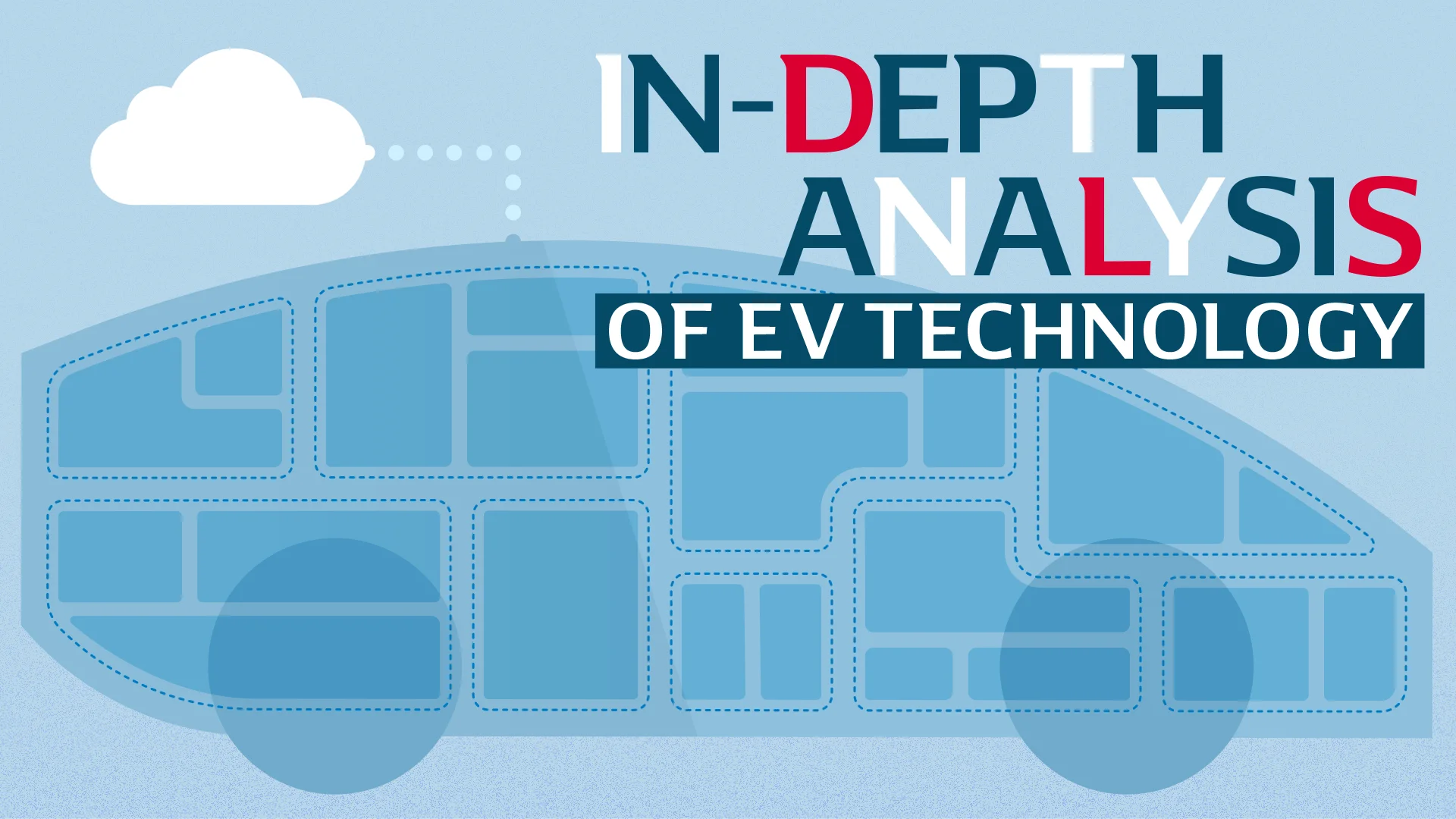Did you find this article helpful for what you want to achieve, learn, or to expand your possibilities? Share your feelings with our editorial team.


Sep 14, 2020
VISION & IDEAThe core of future mobility
Building a partnership between humans, cars and the environment
One of the most significant impacts made COVID-19 pandemic in 2020 has been on our ability to travel freely. With new restrictions on mobility, which most of us have taken for granted for a long time, various changes have taken place. Private vehicles have suddenly regained attention as personal – and therefore safer – spaces that are preferred over public transport. On the other hand, we have also seen a sharp drop in air pollution levels due to people working from their homes and traveling significantly less. We are reminded of the environmental impacts of mobility.
How will mobility change as we move forward? At the very least, cars must become a sustainable means of transportation, and cause no harm to the environment. How can we balance convenient transportation with environmental protection?
Contents of this article
Balancing environmental considerations and comfortable urban mobility

Technology has made it possible for people to travel farther and faster. However, there are also challenges arising from the progress of mobility, particularly those related to its impact on the environment. About 18.5% of CO2 emissions, which is one of the main causes of global warming, is generated by the transportation sector.
Various regulations have entered into force all over the world to reduce the environmental impact of mobility. The use of cars in urban areas is restricted, and the use of mobility with internal combustion engines, especially gasoline and diesel cars, is now subject to stricter regulations.
The city of Oslo in Norway has been working on a project to establish a "car-free" city. From 2015 to 2019 cars were gradually restricted within the city and by the end of 2018, 700 parking spots in the city center were all eliminated.
In Madrid, Spain, there are also efforts to restrict the entry of cars into the city center. Similar initiatives are under way in Paris, France, in Athens, Greece, and in Mexico City, Mexico, all designed to eliminate internal combustion cars, such as diesel cars, from city centers by 2025.
It is still not widely known in Japan, but a worldwide movement to restrict the use of cars in urban centers has begun. If nothing is done, cars could be removed completely from cities as a threat to the environment.
In order to ensure that people can travel comfortably without harming the environment, cars need to be more environmentally friendly.
Brands that make mobility sustainable
Electrification is seen as a viable solution to making vehicles more environment-friendly, and is thus being pursued worldwide. DENSO develops and produces mobility systems, products, and components that are designed to enable electrification – an essential aspect of this important challenge. DENSO aims to realize sustainable mobility by developing and spreading components with improved electric cost (power consumption rate of electric cars and motorcycles) required for electrification products.
In 2018, DENSO launched its ELEXCORE brand for all of its electrification products, with the hope of becoming the leading company in electrification. Under the ELEXCORE brand, DENSO is developing products that offer new value that cannot be found in conventional electrification products and making these products available to the global mobility industry.

We interviewed development staff members Yoneda of Electric Components Engineering Division, Inamoto of Electrification Components Engineering Divison 2, and Shindo of Electrification Components Engineering Division 1, about the characteristics of ELEXCORE. We focused on three specific products – the motor generator, the battery management unit, and the inverter – starting with an introduction of the components and the role that each one plays in EVs.
A motor generator is a product that drives an automobile while converting tire rotation into electricity. "When an electric car starts or accelerates, the motor generator acts as a power source, and when a car stops by applying the brake, it produces electricity by using the energy generated by the rotation of the tires. This product has succeeded in downsizing and reducing weight by taking advantage of the unique wire winding technology that DENSO has cultivated through the production of the SC alternator (automotive generator) and the insulation technology against high voltage that has been refined through the development of electrification products."
The battery management unit measures the voltage, current, and temperature of the battery, to use the battery safely. As Inamoto explains, "If batteries are not properly managed, they can cause problems such as combustion. The battery management unit helps prevent such problems and keeps the battery safe. The product DENSO is developing is characterized by its high voltage measurement accuracy and reduced number of parts required for measurement. If the error in voltage measurement is reduced, the battery can be used efficiently and the mileage of the electric car can be extended.”
An inverter is a product that converts direct current electricity from a battery into alternating current and sends it to a motor generator. According to Shindo, "When we try to convert electricity with an inverter, there is some energy loss, and if the loss is large, the electric cost efficiency deteriorates. In order to improve the power cost, it is important to reduce the loss, and in order to reduce the size, it is important to efficiently cool the heat generated by the loss. DENSO’s technologies for semiconductor, control and cooling are used in this area. If we can reduce loss for cooling down, the inverter can be powerful even if it is small in size, so we will be able to achieve downsizing and high output.”
Pursuing quality to protect human life and the environment
In order to make it possible for people to drive safely for long periods of time cars need to be made more environment-friendly, from the time they are produced until their disposal. To realize these values, DENSO is focusing on three key points when developing products.

The first point is high quality.
A manufacturer produces tens of thousands of cars, but for a customer, the car he or she owns is unique and precious. To ensure that people can continue driving their cars safely and comfortably, we must hold ourselves to the highest standards of quality. The failure of even a single automobile component puts human lives at risk. To keep people safe, DENSO maintains the highest level of quality from the early stages of design all the way through to production, producing parts that will not break.
Inamoto describes DENSO’s process. “In manufacturing (MONOZUKURI), DENSO is involved in every process of the design stage to improve quality. In factory production, we adhere to the slogan, 'zero defect', to eliminate faulty products. When something goes wrong, we immediately provide feedback from the production site, then we go back to the design to find the cause and solve the problem."

The second point is high performance.
The high performance of electrification components greatly affects the electric cost of cars. The better the electric cost, the less energy the vehicle needs, the longer it can run, and the lower the running costs.
To create these values, DENSO focuses on the performance of the entire system when combining products, including the performance of individual products. When we design, we try to improve the overall electric cost by combining ELEXCORE products to achieve the best performance.
Shindo further explains how components work together. "When you drive an electric car over a long distance, you need to install a large capacity battery, but because the battery is very expensive, the vehicle price becomes very high. However, when combined with ELEXCORE products, even with a small battery you can drive a car for long distances, reducing the cost of the battery. As a result, the total vehicle price will be reduced. In addition, the running cost will be lower because the energy efficiency will be better and the electric cost will be improved."
The third point is downsizing.
The smaller the products installed in the vehicle, the more room the vehicle will have and the more comfortable traveling will be. In addition, with smaller products, less resources are required for each product and the less waste will be generated during the development process. We can say that our efforts for downsizing also contributes to environmental problems.
Focusing on these three points, DENSO places importance on the development process in order to create value for our customers. All ELEXCORE products are produced in-house using technologies that DENSO has developed over the years. This in-house development leads to creating new and better value for both customers and the environment.
The more widespread ELEXCORE becomes, the more cost-effective mobility will become and the less impact it will have on the environment. The ELEXCORE developers shared their thoughts on the environment.
“We heard that the spread of COVID-19 caused people to refrain from driving cars, resulting in cleaner air.” Cars are required to be electrified so that they no longer have a negative impact on the earth. We would like to contribute to solving environmental problems by improving the performance of ELEXCORE and promoting its use." (Shindo)
Realizing the joy of free mobility and environmental protection

ELEXCORE's value is not limited to cars. ELEXCORE aims to be the core of all types of electric mobility in the future, as various types of mobility become electric.
With ELEXCORE mobility, you can travel further, safely and using less energy. When more ELEXCORE products are used in mobility, the environmental impact of transportation will decrease, and mobility will become more sustainable.
As we “coexist with COVID-19” there is a need to create balance between the realization of personal and comfortable mobility and the preservation of the global environment, which often seem to contradict each other. In order to achieve both of these goals, DENSO will continue to craft the core technologies that will enable mobility that makes it possible for people to live in harmony with the planet.
COMMENT
Changing your "Cant's" into "Cans"
Where Knowledge and People Gather.




